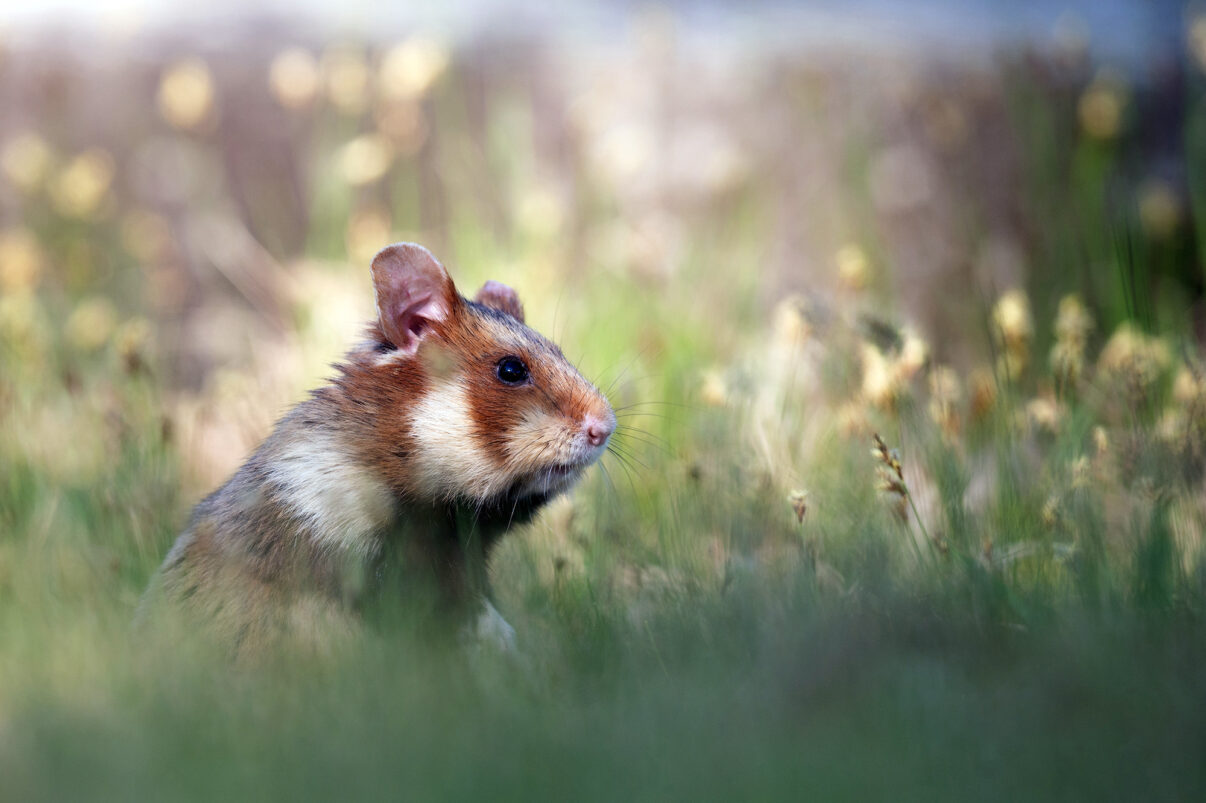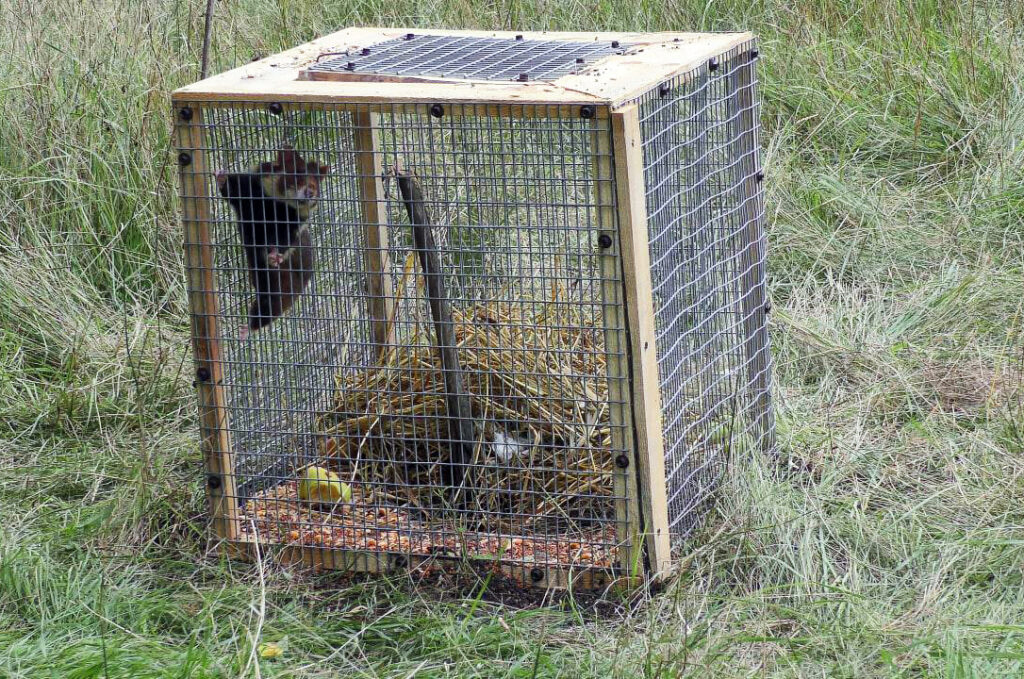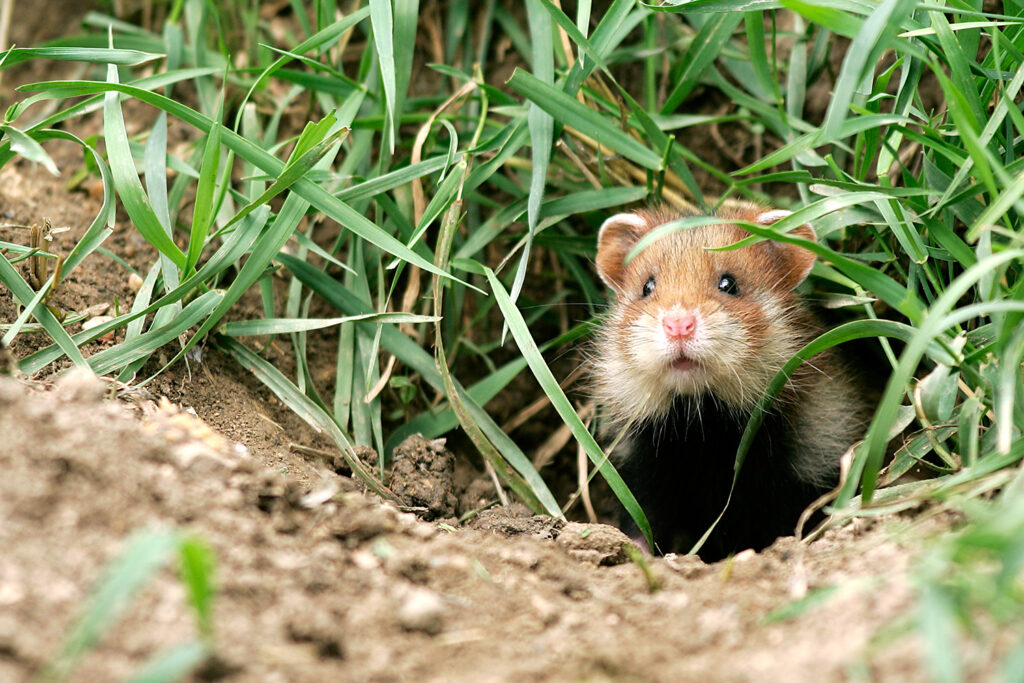The reintroduction of these endearing and ecologically important rodents, which were once widespread across Ukraine and Europe, will help to create a healthier and wilder steppe landscape.

Rodents on the rise
A family of three European hamsters has been released onto the Tarutino Steppe, in the Danube Delta rewilding landscape in Ukraine. This is the first release of a reintroduction programme overseen by the Rewilding Ukraine team, in collaboration with Kyiv Zoo and the Tarutino Steppe Nature and Ethnographic Park. As their population grows, the diminutive rodents should have an outsized impact, helping to restore local food webs, enhance biodiversity, boost nature-based tourism, and create a wilder steppe landscape.
The hamsters are the latest in a line of native herbivorous animals returned to the Tarutino Steppe by the Rewilding Ukraine team, with kulan (Asiatic ass), European fallow deer and steppe marmot populations all doing well.
“We hope that the hamsters will acclimatise to their new home, successfully overwinter, and lay the foundation for a stable population in the region,” says Oleg Dyakov, a rewilding officer attached to the Rewilding Ukraine team. “We are delighted that another species of animal, which was common in this region until the end of the last century, is returning to the recovering Tarutino Steppe.”
An endangered species
The European hamster once inhabited steppes and forest-steppes across Europe, and was resident in most of Ukraine. But today it has almost disappeared in nature as a result of habitat destruction, environmental pollution, and targeted extermination as an agricultural pest. In 2009 it was listed in the Red Book of Ukraine. On the Tarutino Steppe the growing hamster population will benefit from environmental protection and an increasingly wild and healthy landscape.
To help the newly released hamsters settle in, the reintroduction team constructed a small artificial den, which the animals could then deepen and arrange to their liking. The entrance was temporarily covered with a special cage to prevent the animals from running away and to provide them with protection from predators. Having been given a supply of food, the animals are now hibernating.

Beneficial impact
Compared to hamsters kept as pets, wild hamsters are quite large – their body length can reach 30 cm, and they can weigh more than 500 g. They have brown fur with white stripes on the face and front of the body, and live in dens. While they feed mostly on plants, they can also hunt insects and even small mammals. Hamsters carry food in cheek pouches and store supplies for the winter underground. They hibernate from October until March, but wake up every five to seven days during this time to eat.
On the Tarutino Steppe the hamsters will help to maintain biodiversity, improve soil fertility, and spread plant seeds. By excavating dens they will create habitat for many wildlife species, and will also form an important part of local food chains as prey for a range of birds and mammals. A charismatic species, they will also attract tourists and support development of the area’s burgeoning nature-based economy.
Kyiv Zoo has been breeding and returning European hamsters to the wild for a few years as part of a programme to restore populations of rare and endangered species across Ukraine. The next hamster release on the Tarutino Steppe is planned for spring next year.

Want to know more?
